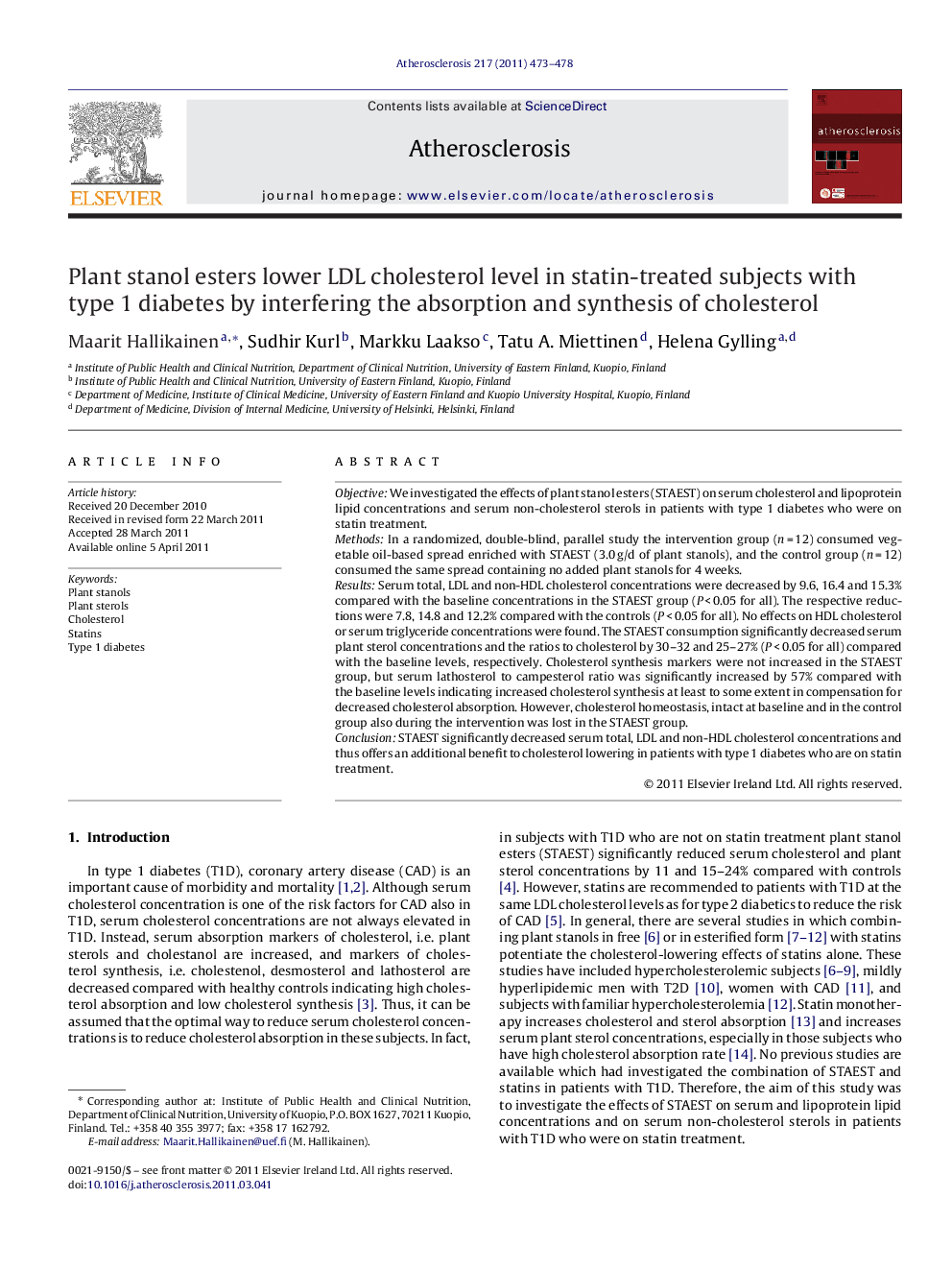| Article ID | Journal | Published Year | Pages | File Type |
|---|---|---|---|---|
| 2892800 | Atherosclerosis | 2011 | 6 Pages |
ObjectiveWe investigated the effects of plant stanol esters (STAEST) on serum cholesterol and lipoprotein lipid concentrations and serum non-cholesterol sterols in patients with type 1 diabetes who were on statin treatment.MethodsIn a randomized, double-blind, parallel study the intervention group (n = 12) consumed vegetable oil-based spread enriched with STAEST (3.0 g/d of plant stanols), and the control group (n = 12) consumed the same spread containing no added plant stanols for 4 weeks.ResultsSerum total, LDL and non-HDL cholesterol concentrations were decreased by 9.6, 16.4 and 15.3% compared with the baseline concentrations in the STAEST group (P < 0.05 for all). The respective reductions were 7.8, 14.8 and 12.2% compared with the controls (P < 0.05 for all). No effects on HDL cholesterol or serum triglyceride concentrations were found. The STAEST consumption significantly decreased serum plant sterol concentrations and the ratios to cholesterol by 30–32 and 25–27% (P < 0.05 for all) compared with the baseline levels, respectively. Cholesterol synthesis markers were not increased in the STAEST group, but serum lathosterol to campesterol ratio was significantly increased by 57% compared with the baseline levels indicating increased cholesterol synthesis at least to some extent in compensation for decreased cholesterol absorption. However, cholesterol homeostasis, intact at baseline and in the control group also during the intervention was lost in the STAEST group.ConclusionSTAEST significantly decreased serum total, LDL and non-HDL cholesterol concentrations and thus offers an additional benefit to cholesterol lowering in patients with type 1 diabetes who are on statin treatment.
